Civics Form Three Questions and Answer All Topics
Download Free Notes based on Competency questions and Answers for Civics Form Three, Get Full Civics Form Three Questions and Answer All Topics
TOPIC ONE: PROMOTION OF LIFE SKILLS
QN. 1 Basing on J.K. Nyerere ideology, good leadership is one of the pre-conditions for rapid development in Tanzania. How would characterize a good leader in your society? Give six points OR According to the first president of Tanzania, Julius K. Nyerere, beside other things, good leadership is an important factor for the development of any community. As an officer from Ministry for local government authorities, give six points on the qualities of a good leadership in Tanzania
GOOD LEADERSHIP refers to the proper leadership which adhere to the important characteristics and qualities of a good leader.
CHARACTERISTICS/ QUALITIES OF GOOD LEADERSSHIP
- Should be able to identify the community goals. A good leader should be able to identify the goals of a community he or she led. This will help him or her to plan the mechanisms to achieve the stated goals of the community
- Should be wise. A good leader should have the wisdom that he or she can be able to make the crucial decisions and solving problems. Wisdom will make a leader to make the appropriate decisions for the development of a community
- Confidence. A good leader should have the courage to speak to people, tell them what to do and correct them when they go wrong
- Non-corrupt person. A good leader should avoid the embezzlement of public fund to personal gain. This will help him or her to bring development to his/ her people because, always corruption decrease the development in a community
- Good personality. A good leader should be charismatic, attractive to the people, strong character through his or her good personality
- To inspire others. A good leader should not issue the order to people to follow, but he or she should be able to instil good characteristics to them which will make it possible to achieve the goals
- Power delegation. A good leader should be able to delegate other people to take some responsibilities. He or she should use and adopts participatory approach in the making decision
- Non-selfish person. A good leader should be able to reward good deeds to his or her people
QN. 2 Your community has been facing some social problem like conflicts, corruption and others. As a form four students show the importance of having good leadership by giving six points OR. Some people in a society are not respecting their leadership. As an officer from Ministry for local government authorities, give six points on the importance of good leadership in Tanzania
IMPORTANCE OF GOOD LEADERSHIP
- Promote social and economic development. Good leadership inspires people to work hard and to be self-motivated to bring development in the country
- Reduces the conflicts. Any organization or community with good leadership have the proper channel to resolve the conflicts that rise among the people in the given community
- Ensures peace and security. Good leadership resolves the conflicts among the people and promotes peace and security. Leadership ensures good mechanism of tracing signs that lead to conflicts and eventually disturb peace in a community
- Enables achievement of goals. Good leadership plays a remarkable role of fulfilling the needs and requirement of others towards achieving the set goals of individuals and those of the organization.
- Facilitate efficiency and effectiveness at work. The satisfactory of the people with their leaders, make them to work too hard in their working place, this will increase good results and strengthening the economy of a particular community
- Facilitates the achievement of stated goals. Good leadership plays a remarkable role of fulfilling the needs and requirements of others towards achieving the set goals in a community
QN. 3 In any given community, teamwork is very important in accomplishment of any given task. Suggest five factors that should be considered in teamwork building
TEAMWORK- is a situation of performing and working well together with high cooperation and unity in any given task or activity. Teamwork may involve joint action done by a group of people with a common goal or purpose.
ASPECTS/FACTORS OF BUILDING TEAMWORK
- Building trust across cultural boundaries. People in a team from different cultural boundaries should trust each other in different ways such as communication, effectiveness in working, conflict management and punctuality.
- Good leadership. Good and strong leadership is essential for success teamwork. Good leadership will encourage members to share thoughts and opinions as well as skills and leader will be responsible in final decisions and implementation
- Goal-setting. A team should set its goals for easy accomplishment of a task. This will make the team members to understand and perform their responsibilities effectively
- Unified commitment. All members must be directing their efforts towards the stated goals.
- The competent team members. Team members must have sufficiently qualified in their task performing. This will help the members to tackle with the problems facing the team
- Conflicts resolution in the team. In any given team, conflicts may rise no matter how well a team function together. The best way to counter conflicts is to have structured methods of conflicts resolution.
QN. 4 Assume you have given the chance to give the speech to the workers of SAPCO transport company on the importance of working as a team within the company, which five factors will you consider?
IMPORTANCE OF TEAMWORK
- Facilitates high production in a short period. Teamwork facilitates the accomplishment any tasks under given environment. The works may be distributed to team members based on interests and competences among the team members
- Increase effectiveness. Teamwork enables people in a group who have the different ideas, creativity and skills to work together with more effectively than single handed job
- Stimulates cooperation and positive relation. Teamwork brings people from different backgrounds and levels of experience to work together. This provide the room for sharing, growth and learning between people in a given society
- Enhance once experience and competence. Teamwork enables people in a group to share knowledge, ideas and skills from other people in a group. This will enhance the working experience of every member of a team because team members will gain new knowledge from each other.
- Promotes innovation. Teamwork improves the process of production and the quality of products and services. Teams are good at making initial improvements on production techniques and products
QN. 5 Social interaction in a community contributes to the development in the society. In the light of this statement, assess the qualities of developing the positive relationship in a community
POSITIVE RELATIONSHIP is a way in which two people, groups or countries feel or behave towards each other. This relationship can be economical, cultural or even social affairs. OR is a state of having meaningful, loving, supportive and cooperative relationship between two or more people in a group.
QUALITIES OF DEVELOPING POSITIVE RELATIONSHIP
- Mutual respect. The action of value each other among the community members may lead to make strong positive relationship. Mutual relationship creates suitable environment for people to live and working together
- Trustiness. This refer to the confidence, acceptance and appreciation of others, groups, or institutions. Trust helps people to work together effectively and to benefit from each other.
- Empathy. This is the ability to recognize and relate to other people’s emotion and thoughts and feel concern about their problems. This is needed in building positive relationships in the society because empathy helps people to live together in peace and harmony and to spend their efforts for good of their community.
- Mindfulness. Being mindful means being careful with one’s words, actions and inactions. Unexamined spoken words, actions and inactions can be harmful in building positive relationship
- Cultural diversity. This is the situation where people of different background, races, classes, ethnicity or religious affiliations are able to live together as human being regardless of their differences.
QN. 6 Consider yourself as a community development officer, explain six advantages of positive relationship to the development of the people in a community
IMPORTANCE/ADVATNTAGIES/MERITS OF POSITIVE RELATIONSHIP
- Maintains sense of goodwill. Positive relationship maintains and develops a sense of goodwill, friendship or companionship among the people in a community.
- Promotes unity cooperation. Positive relationship consolidates cooperation among the people because through positive relationship, people will work together peacefully regardless of their differences.
- Maintain mental health of a person. Positive relationship maintains mental health of an individual and society by living a happy life without any conflicts, quarrelling or stress.
- Promotes community development. Positive relationship promotes the community development because through working together among the people will help to fight against common enemies in the community such as poverty, ignorant and deceases.
- Reduces the conflicts among the people. Positive relationship reduces the occurrence of the conflicts among the people, especially in a working place or in a life family, between husband and wife or other family members
QN. 7 Self- worth makes a person to have unconditional love to oneself. In five points, elaborate the important aspects of building self- worth to an individual person
SELF-WORTH refers to a feeling of confidence in oneself that a person is a good and useful person. Worth means, how much we value something, how important it is to us and how much priority we give it compared to other thing.
ASPECTS OF SELF-WORTH
- Taking good care of yourself. In order to build the self-worth, a person is required to take care for him or herself from any dangerous situations and actions that will endanger his or her health or status
- Spend your resources wisely. Your resources such as time and money must be spent wisely in any activities. Avoid embezzlement of your resources and money
- Refuse bad or risky advice from your fellow friends. In order to build self-worth a person must avoid bad or risky advice that might endanger his or her life
- Avoid regrets, anger and fear in your lives. A person can build the self-worth through avoiding the feel of remorse, resent and fright. These depreciate self-worth faster than anything in our lives.
- Calmness in handling problems or any challenges. A person builds self-worth through being patience in dealing with problems difficult situation or misfortune in his or her daily life
QN. 8 Some people fail to calmness on handling challenges and problems due to the lack of self- worth to themselves. In the light of this statement, explain five importance of self- worth to an individual
IMPORTANCE OF SELF-WORTH
- Help to reduce risky behaviours. Self-worth help an individual to avoid risky behavior such as drug abuse and alcoholism as well as self-harm. People who value themselves are always determine and refuse to achieve a bright future
- Influences work engagement. Recognizing self-worth can increase your engagement at work, leading to higher productivity and improved relationship with co-workers.
- Promotes good decision making. Your sense of self-worth helps you to trust your own judgment and make better decisions, which is an important leadership quality that can help you to advance in your career.
- Promotes problem solving abilities. Self-worth helps us in solving problems confidently. When you have positive self-worth, you are more likely to accept the challenges you face in life.
- Makes more resilient during setbacks. When you feel good about who you are, you will not consider yourself a failure even after something you have attempted did not succeed. You do not consider the failure to be your identity. When bad things happen, you deal with them and move on, when you fail, you accept the failure and find an alternative.
- Determines psychological wellbeing. Self-worth protects us from different types of mental illness and emotional problems such as depression, anxiety and relationship challenges.
TOPIC TWO: CONCEPT OF DEVELOPMENT
QN. 1 Tanzania is one among of the least developed countries in Africa. As a Tanzanian elaborate six features of this group of countries Tanzania included.
DEVELOPMENT is a process which involves the changes from one stage to another in which the second stage is more advanced than the previous stage. Development involves the changes in the aspects of social, cultural, material, material, politics or spiritual in nature.
FEATURES/CHARACTERISTICS OF DEVELOPING COUNTRIES
- Low per capital income. Per capital income is the average amount of income earned by a person in a certain community. Per capital income of developing countries is relatively low compared to that of developed countries.
- Mass poverty. The majority of the populations in developing countries live below the poverty line, without the basic necessities such as food, clothing, shelter and health service. The World Bank Report of 2015, define poverty line is a state at which an individual life on US dollar 1.90 or less than a day.
- Excessive dependence on agriculture. In developing countries, majority of the population engage and depend on agriculture in terms of peasant- based economy as their main economic activities. Engagement of the majority of population in agriculture is a reflection of insufficient investment and technological capabilities that can be utilized in production and income generation.
- Underutilization of natural resources. Some countries are rich in natural resources such as water resource, forest resource, land resource and mineral resources. But the countries fail to utilize them effectively due to low technological, low investment and poor leadership.
- High trade deficit. Trade deficit occurs when the value of a country’s imports is greater than the value of exports. It is therefore the trade gap between what is sold and what is bought from outside.
- Rapid population growth. Population growth of a country is considered to be rapid if the rate of its growth is higher than the rate of economic growth. In developing countries, the rate of population growth is much higher than that of economic growth.
QN 2 Many European countries and some in Asian countries developed faster than the African countries, give six reasons behind this situation
REASONS WHY SOME COUNTRIES DEVELOP FAST THAN OTHERS
- Availability of natural resources. Countries that have more natural resources and are able to utilize them effectively will realize development faster. But the problems lie in the ability to exploit and use such resources
- Availability of skilled labour. Labour is quite an important tool and countries with adequate labour in terms of skills and the right attitude, will develop faster. Human resources development is important, but this must be based on proper education and training policies linked to growing investment in the public and private sectors
- Availability of good governance. Good governance will provide good political climate and good leadership, while human and land resource will ensure sustainability in economic production
- Income redistribution. It is important to ensure income redistribution to the citizens through public provision of education and health services and government subsidy on essential goods to promote well balanced provision of social services to all members of the society.
- Increasing production. Increasing production is another source contributing to faster development. A country must seek ways towards improvement in productivity. This could be through increased supply of power, technological improvement, increased productive skills, creativity and innovation, better production management and improved infrastructures in order to enhance distributions of goods and services.
- Existence of investment in productive capacities and infrastructures. Other issues are investment in productive capacities and infrastructures. A country must seek ways to increase investment by promoting and mobilizing domestic savings and attracting foreign investors.

TOPIC THREE: SOCIAL DEVELOPMENT
QN. 1 Suppose you have invited by the officer of social welfare of Rungito ward to explain the material factors that indicate the degree of attainment the social development in a community. Which five factors will you most consider?
SOCIAL DEVELOPMENT refers to the improvement in the welfare of the people, living standard and quality of social services in the areas they live. It covers the increase in availability and quality of social services provided such as water, education, health, electricity etc. Social development is about creation of material and non-material conditions that enable a person to live a decent life.
INDICATORS OF SOCIAL DEVELOPMENT
- Quality education and lifelong learning. A society is socially developed if it is capable to provide quality education that meet the requirements of the society by ensuring the promotion of the appropriate skills development, gender equality, provision of relevant school infrastructures, equipment, educational materials, financial resources and qualified teaching staff.
- Health life of the people. A society is socially developed if its members are healthy physically and mental wellbeing. Having healthy members in a society is an indicator of attaining satisfied provision of effective and efficiency of medical care to a community
- Gender equality. A society is socially developed if both male and female are equal in terms of rights and opportunities. In such a society, opportunities and services are provided to all regardless of their gender.
- Food security and sustainable agriculture. A society is said to be socially developed if safe and nutritious food is available, accessible and affordable to people. A society is socially developed if it promotes or it has established a mechanism for sustainable agriculture.
- Clean water and sanitation. A society is socially developed if individuals have access to clean water and proper toilets. Availability of clean water enable people to be healthy and protect them from diseases that are caused by harmful micro-organisms found in dirty water such as Urinary Tract Infection (UTI), typhoid and bilharzias
QN. 3 As an officer from social development projects in Tanzania, assess five non-material factors that indicate the attainment of social development in a community
NON-MATERIAL INDICATORS OF SOCIAL DEVELOPMENT
- Freedom to the people. A society is socially developed if individuals are free. freedom signifies independence or ability of people to determine their own way of life and destiny without being forced by other societies.
- Equality between people. Human beings are equal in terms of rights and opportunities. A developed society is one in which people’s fundamental human rights are respected.
- Unity. Unity is a state whereby individuals in society are bonded together by a common purpose. A society is said to be socially developed if its people are united and not fragmented into different opposed factions
- Peace. A society is socially developed if its people live in peace. As human beings, individuals in society need to live in peace and harmony with others.
- Sharing or fair distribution of resources. Sharing of resource is an essential indicator of a society that is socially developed. The welfare of individuals in a society is enhanced when society resources are fairly distributed.
- Cooperation and participation. A socially developed society is one in which individuals live together and cooperate with others in order to achieve their objectives
TOPIC FOUR: ECONOMIC DEVELOPMENT
QN. 1 The more industrialize a nation, the more developed it is” in the light of this quotation, assess six factors that indicate the degree of economic development to both rich and poor countries
ECONOMIC DEVELOPMENT is the increase in production of goods and services and the income produced in a given community.
INDICATORS OF ECONOMIC DEVELOPMENT
- Per capital income. This is the average income of the people in a given country per year. It is obtained by dividing the total annual income (Gross National Product-GNP) of a country by the total population of that country. The country with high per capital income is said to be developed than the country with low per capital income.
- Energy consumptions. The amount of energy/ power such as electricity, gas, solar energy, oil, coal produced and consumed in developed countries is higher compared to the energy consumed in less developed countries. Most of the energy used by people in developing countries, especially in cooking are firewood or charcoal which is used by majority of the people in both urban and rural areas, only few of them use gas and electricity. In the developed nations use gas, solar energy etc
- Rate of employment Opportunities. This is the situation in which people in a given country become employed or unemployed. If there are higher employment opportunities in a country that is the indicator of high economic development, and if there are low employment opportunities in a country, that is the indicator of low economic development
- Share of Agriculture to the Gross National Product. This is the contribution of agriculture in the total production of goods and services in a given country. If the percentage share of agriculture to the GNP is higher than the other sectors that is an indicator of low level of development.
- Labour Force Employed in Agriculture. This is the number of people employed in the agriculture sector. If the number is high, it is therefore implying that the country has less developed scientific and mechanized farming methods, hence the country being referred to an economically undeveloped.
- Quality and efficiency of equipment produced and used. In developing countries like Tanzania, the quality of tools and equipment’s produced is very low because of their low level of science and technology, while in developed countries, the situation is contrary due to their higher level of science and technology
QN. 2 The government of Tanzania is now focusing on adopting industrial economy to meet with the challenges of global scale. As one of the stakeholders toward this process, analyze five factors to be considered to ensure the achievement of that goal
FACTORS FOR ECONOMIC DEVELOPMENT
- Technology. Technology increases efficiency and more production of goods and services. Application of technology allows for new innovation and creation of complex scientific tools and mechanization in production. Improvement in technology has a big impact on economic growth.
- Good Infrastructures. It includes road, railways, electricity, etc. Infrastructures are needed to be good and quality in economic development, for instance quality roads are needed to transport goods from produced area to market place
- Entrepreneurship. These are people who are ready to start and organize a certain economic business. Most of these people take risks in their businesses and they are always responsible in profit and loss.
- Availability of Resources. In economic development, resource include; natural resources such as land, water, forests, wildlife, minerals, air and sunlight. Another is human resource which is the productive force consisting of skills, knowledge and ability with the help of capital and machines. Another is financial resource which is used to invest in production
- Political stability. Good political stability promotes economic growth because it protects producers from being disturbed by both internal and external enemies. With political stability, good governance and private economic policies can smoothly be implemented
- Capital. Capital means all made-made asserts. Capital is used to produce other materials. Example of capital are tools, machines, and building. Capital increases the productivity of land and labour.
TOPIC FIVE: PROVISION OF SOCIAL SERVICES
SOCIAL SERVICES are those benefits, utilities and facilities in form of consumption which are provided by the government, public agencies or private sectors to ensure social wellbeing of people or citizens of a particular country.
QN.1 Government is now focusing to enhance the provision of social services for the welfare of the people in the country. Explain five challenges in provision of social services in Tanzania
CHALLENGES FACING THE PROVISION OF SOCIAL SERVICES
- Financial problem. There is financial problem to both government and private institutions which make it difficult to provide social services to many people
- Poor transport system. In some part of the country, there is the problem of remoteness and poor transport system which limit the accessibility to social services. People living in remote areas do not have access to an efficient transportation system
- Corruptions. Some of the government and private employees engage in the corruption acts which make biasness in the provision of social services
- Shortage of workers. The number of workers is still low in Tanzania, especially in rural areas. Worker like teachers, technicians, Nurses, doctors are still in big demand
- Expansion of settlements. The growth of settlements is faster than the pace of building new and relevant facilities. In many parts in Tanzania, the days go on, people expand their settlement by building new houses to the new areas.
- Expensive of the services. Some services are too expensive and citizens are unable to meet the cost of getting them. There is too much cost to the services provided especially those provided by the private sectors, some people are unable to afford the cost of the service
- Destruction of some infrastructures. There is the destruction of infrastructures of both government and private sectors done by some of the individuals such as electric cables and transformers, bridges, pipelines and others
QN. 2 Despite the success in supplying clean and safe water there are various challenges facing water sector in Tanzania. Using six point to verify those challenges
CHALLENGES FACING THE PROVISION OF WATER SERVICE
- Uneven water supply. There are some areas which det water daily and some rarely get it.
- Farming near the source of water bodies. Our farmers sometimes use fertilizers which are swept into the water bodies by rainwater. As result the water can be contaminated with chemicals.
- Mining activities. In mines, water is used to clean gold. Strong acid such as cyanide contaminate water which when used cause death to the people
- Illegal fishing. There are fishermen who use poison to catch fish. This action pollutes the water and can cause creatures living in the water and human being who will use the poisoned water.
- High rate of water bills. This is a threat to many consumers
- Dirtying water by throwing sewage into water bodies. Most of the sewage system from home, hospital and industries are directed to water. This causes water pollution, contamination as well as death of creatures living in the water.
TOPIC SIX: THE ROLE OF GOVERNMENT, PRIVATE SECTOR AND CIVIL SOCIETY IN SOCIO- ECONOMIC DEVELOPMENT
QN. 1 Suppose you have invited to provide the motivational speech to the entrepreneurs and traders of Sabasaba market, prepare six points to analyze the role of government on socio- economic development in a community
ROLES OF GOVERNMENT IN SOCIO-ECONOMIV DEVELOPMENT
- Maintaining peace and security. The government is responsible for maintaining law and order and ensures national peace and security. The presence of peace and security system ensures stability of the country. this in turns promotes flow of local and foreign investment.
- Formulation of economic policies. The government is responsible to formulate the economic policies to speedup socio-economic development. Economic policies are typically implemented and administered by the government.
- Redistribution of income and wealth. The government is responsible to redistribute the income because some people cannot afford basic necessities. Tanzania has established different programmes such as Tanzania Social Action Fund (TASAF), provision of free primary and secondary education, medical service coverage for the elderly and children under-five years and their mothers to ensure equal re-distribution of income
- Stabilization of the economy. The government has the responsible of ensuring economic growth and stability by enacting good policies. These policies are then followed by different actors and serve as a common framework. The government stabilizes economy through application of fiscal and monetary policies.
- Provision of good leadership and administration. The government has a role of providing strong leadership and capable administration that will make the economy prosper and benefit the entire population
- Creation and maintenance of monetary system. The Bank of Tanzania is the key regulatory organ responsible for maintaining a functional monetary system. The government establishes monetary system in order to facilitate business transaction and manage the amount of money circulating in the economy
QN. 2 Suppose you are the head of department of social services in Kilosa district council, explain five roles of private sector in spearheading socio-economic development in your district.
PRIVATE SECTOR is the economic category in the country, whereby the production of goods and services are owned and controlled individually, organization or institution. Private sector is divided into two groups, namely; formal sector and informal sector.
ROLES OF PRIVATE SECTOR IN SOCIO-ECONOMIC DEVELOPMENT
- Conducts investment. Private sector invests in different sectors of the economy, promote social and economic development. The investment of private sector in economy increase the volume of production of various goods and services, create employment opportunities and promote inter-industry linkage
- Creates employment. Private sector stimulates the economy in different ways. Some enterprises are highly-growth economic project, stimulating different economic sectors and creating employment potentials to the people.
- Enhance transfer of technology. Private sector owns and uses a lot of technologies which contribute positively to sustainable development at individuals and national level
- Enhancing small enterprises. Private sector improves small enterprises which provide employment to the majority of workers in Tanzania. They are usually in more direct contact with consumers and the general population.
- Enhance innovation and entrepreneurship. Private sector always enhances innovation in order to increase productivity and efficiency in production. This is done in order to become more competitive against other firms and products or services both foreign and domestic.
- Complementing government effort in service provision. The private sector plays a vital role in service provision in a way that, it complements government efforts in provision of services. The private in Tanzania has been instrumental in provision of services such as education, health, transport, financial, insurance and communication services.
QN.3 You have given the chance as an officer from Ministry of work, employment and youth development in Tanzania to deliver talks to the youth who neglect self- employment opportunities in the country. Prepare six key points on the advantages of informal sector in raising socio-economic development in the country.
INFORMAL SECTOR is the sector which is not subjected to follow the government rules and regulation. This sector is not structured to pay the tax to the government and it does not regulate by labour laws of the country. Such business includes; street vendors (machinga), food vendors (mama/baba lishe), motor cycle riders (bodaboda), shoe shiners, carpenters, masonry, tailoring,
ADVANTAGIES/MERITS/IMPORTANCE OF INFORMAL SECTOR
- Create employment opportunity. Informal sector creates employment opportunities to both educated and uneducated people, especially self- employment which make people to earn living
- It simplifies the access to goods and services. Informal sector simplifies the access of goods and services to those who live away from town centers through street vendors who go somewhere to sell their businesses.
- Facilitates the production of goods and services. Informal sector produces goods and services which are needed by the people, for instance producing furniture like chairs, tables and building the houses
- Reduces poverty. Informal sector reduce poverty, because most of the youth who lack necessary skills to be employed in the formal sector engage in entrepreneurship activities such as street vending and food vending to earn their living.
- Increases individual income. Informal sector provides the opportunity for the low-income earners to increase their income through their businesses. This enables them to secure their needs for survival.
QN. 4 Briefly explain main six setback of informal sector facing most of entrepreneur in Tanzania.
SETBACKS/PROBLEMS/CHALLENGES FACING INFORMAL SECTOR
- Difficult to secure loans and credits from financial institutions. Most of the people who engage in informal sector are unable to secure loans from financial institutions like banks due to the lack of job security in their business. The conditions of getting loan from a bank are too difficult for them to fulfil. This make them to lack enough capital to expand their businesses
- Lack permanent areas to conduct their businesses. Some of the people who engage in informal sector, lack the permanent places where they can settle to conduct their business freely
- No retirement benefits to workers. Most of the people in this sector do not register in pension fund which can cater for their retirement. This may be due to lack of appropriate information or enough income to contribute to a pension fund.
- Legal uncertainty. Most of traders in this sector are not registered, this made them to conduct their business with fear and sometimes they are harassed by the town rangers because they were not recognized by the authorities as the official businesses men
- Limited contribution to the public revenues. This sector has little contribution in public revenues of the country. this make it difficult for the government to provide good infrastructures and social services
QN.5 As an expert in civics, propose to urban authorities six ways to address the challenges facing informal sector
MEASURES/STRATEGIES TO ADRESS CHALLENGES FACING INFORMAL SECTOR
- Provision of business education. This can assist them to know, appreciate and employ various strategies and skills such as ICT which will help them to improve their business.
- Improve the access to financial institutions. There must be strategic plans that will help them to get soft loans and credit from the financial institutions to facilitate and expand their businesses
- Creating legal and regulatory framework. The government should make sure that, people in this sector have the access to legal rights, access financial services and to protect them from any harassment.
- Allocation of special and suitable areas for their business. The government should identify various activities from informal sector and allocate them where they can conduct their businesses freely.
- Extending social protection schemes. The government and other stakeholders must encourage the social protection schemes to the informal sector like business and health insurance that can suit the conditions of this sector
TOPIC SEVEN: THE ROLE OF FINANCIAL INSTITUTIONS I ECONOMIC DEVELOPMENT
QN. 1 For development to take off in the country, capital is necessary in terms of human capital and finance. Propose six ways in which financial institution in the country can pave the way to welfare and prosperity of people in the country
FINANCIAL INSTITUTION are public or private organizations which deal with the money and financial services in the country. Such institutions include Banks, Insurance companies, SACCOS, Social Security Institution, Loan giving institutions and Bureau de change.
IMPORTANCE/CONTRIBUTIONS OF FINANCIAL INSTITUTIONS TO WELFARE AND PROSPERITY OF PEOPLE
- Provision of loans. Financial institutions facilitate the development of economy through the provision of loans to the people so that people may undertake the business or production services from that loans
- Create employment to the people. Financial institutions create employment opportunities to the people. Many people are employed in these institutions and get their salaries and wages which help them to undertake economic activities.
- They provide business education. Financial institutions provide the business education to their clients before they give them loans, so that the clients could manage their business in order to avoid bankruptcy
- Create economic projects. Some of financial institutions are established their own economic projects such as building the houses for renting. This help in raising the economy of the country
- Keep and grant the customers’ contribution. Some institutions like NSSF keep the customers’ contributions when they retire or stop working, within six months take their money for various activities that could raise the economy
QN. 2 In this new era of economic system in Tanzania, mobile phone technology plays a vital role in developing our economy. As a good mobile user, propose five significances of mobile phone financial service in order to attain targeted goal.
MOBILE FINANCIAL SERVICE refers to the financial service which involves online access and transacting of money by using mobile phones or devices. This service in Tanzania is generated and supervised by the telecommunication companies such as TIGO (Tigopesa), Vodacom (M-Pesa), Airtel (Airtel Money), Halotel (Halopesa) and Zantel (Ezypesa). This service allows people to send and receive money, deposit of money, withdrawal of money to the authorized agent, top up airtime and loans, make payment on various trade transactions in their mobile numbers.
IMPORTANCE/SIGNIFICANCE OF MOBILE FINANCIAL SERVICES
- Provide direct service. Mobile financial service provides direct service to the people because the users can receive money directly in their mobile phones without going through any intermediary.
- Cover many financial services. Mobile financial service covers many financial services that people may use to improve economy with low cost. For example, save money, send money or pay various trade transactions.
- It is safe service. Mobile phone financial service is secured because the funds of the customers in mobile phone are protected by local and international financial regulations.
- Source of employment opportunity. Mobile phone financial service creates and accelerates employment opportunities through people who provide such service. For example, authorized agents which are available in many areas around our communities.
- Fast service. Users can receive money and send money or pay client instantly. This helps to save time and do away with the bureaucratic process common in ban
- Convenience. Mobile phone financial service is simple to use because it is on a user’s mobile phone and can be used wherever there is a mobile phone signal
TOPIC EIGHT: POVERTY ERADICATION IN TANZANIA
POVERTY is a situation whereby, a person is unable to attain the minimum level of well- being such as income level, education level, consumption level and lack of basic needs.
QN. 1 Despite the government efforts on the war against poverty, Tanzania is yet won. analyse six root causes of poverty in Tanzania.
CAUSES OF POVERTY
- Dependency economy. Most of the developing countries suffer from depending in foreign economic plans. This result into rapidly rise of price fluctuation of the import and export of the goods
- High illiteracy rate. This may increase poverty because the victims are unable to affect a reasonable family planning or even make wise use of their resources
- Low level of science and technology. In developing countries for instance 80% of farmers use local tools and traditional methods of farming. As result the production is low
- High dependency on agriculture. Most of the people in developing countries depend on agriculture, but the frequent climatic changes such as drought affect the productions which lead to low products
- Poor economic plans. Most of the economic plans in developing countries do not involve the masses who could contribute good ideas for eradicating poverty. In Tanzania for instance there were many economic plans which were well implemented such as kilimo kwanza and assist the street venders (machinga)
- Eruption of diseases and natural hazards. Many people in developing countries are suffering from diseases like Ebola, HIV/AIDS, Malaria, TB and others. This situation affected the production of goods and services. Also, natural hazards like floods and drought may cause destruction of crops and loose of live
QN. 2 What evidence would you use to show the presence of poverty in a certain community? Give six points
INDICATORS OF POVERTY
- Low per capital income. Per capital income is the average income of the people in a given country. The lower per capital income of a country and person the more poor are the people in the country
- Low level of science and technology. This is the low degree of application of science and technology which results in low production in the societies
- High rate of illiterate people. This is resulted by the lack of enough fund to the people who could afford education to their children
- Low life expectance. This is the average number of years in which a person is expected to live. In developing countries like Tanzania, the average years of the people expected is very low because of poverty
- High infant mortality rate. This is the degree of children death in the society. In developing countries there is high rate of children’s death, where most of the children die before the age of five years
- Poor means of transport system. This is very serious problem in many of the developing countries
- Poor housing condition. Most of the people in developing countries especially in rural areas are unable to build the modern houses due to the poverty
- High rate of unemployment. Most of the citizens in developing countries are suffering from the lack of employment due to the poverty of the country
- Poor provision of social services. Most of the developing countries suffer from inadequate provision of social services like water supply, health, education, electricity
- Political instability. Poor countries are also victims of political instabilities like civil wars, border conflicts, strikes and risks
QN. 3 Assess the long implications of poverty to a country like Tanzania by using six points.
IMPLICATIONS/EFFECTS OF POVERTY
- High infant mortality rate. Poverty causes to the increase of mortality rate of infant and other people in the society because people fail to their economy to fulfil cost of health service
- Increases of illiterate people. Poverty lead to the increase of illiteracy among the people to the increase of school dropout in the country because many people do not access to education service
- Increases the rate of crimes. Poverty lead to the increase of social crimes due to unemployment especially in urban areas
- Inadequate provision of social services. Poverty contribute to the failure to expand the provision of social services like water supply due to lack of fund
- Inability of the people to satisfy their needs. Poverty lead to the failure of people to get the basic needs such as balance diet, quality clothes and good housing
QN. 4 Despite of being credited as a middle lower income country, Tanzania still having some elements of poverty. If you are to advice the government authorities what will be the strategies of poverty alleviation? Give six points
STRATEGIES/ MEASURES TO ALEVIATE POVERTY
- Changing education system. Change from training for depending employment from the government to self-employment. This will increase rate of employment and reduce rate of unemployment
- To control the rate of population growth by introducing some measures like family planning
- Promotion the use of science and technology. The production of goods and services should consider the high usage of science and technology
- Recognizing the roles of private sectors. Private sectors are creating employment opportunities by increasing investment
- To reduce debt crises. Tanzania has approached the IMF and World Bank and individual capitalist the loan with high interest rate. So, it is better to take necessary steps to rescue the debt crises
- Fighting against diseases. The diseases like Malaria, Cholera, HIV/AIDS should be well preventive by enhancing the better provision of health service





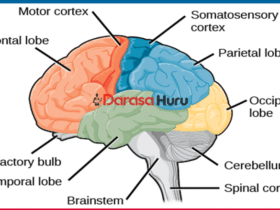

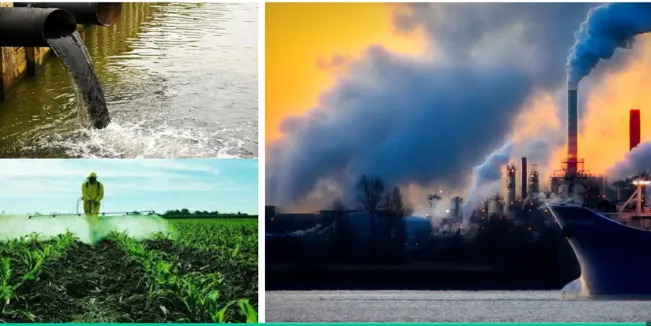



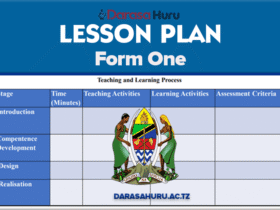








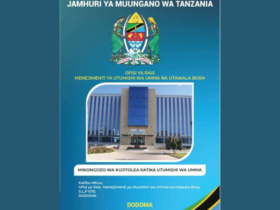
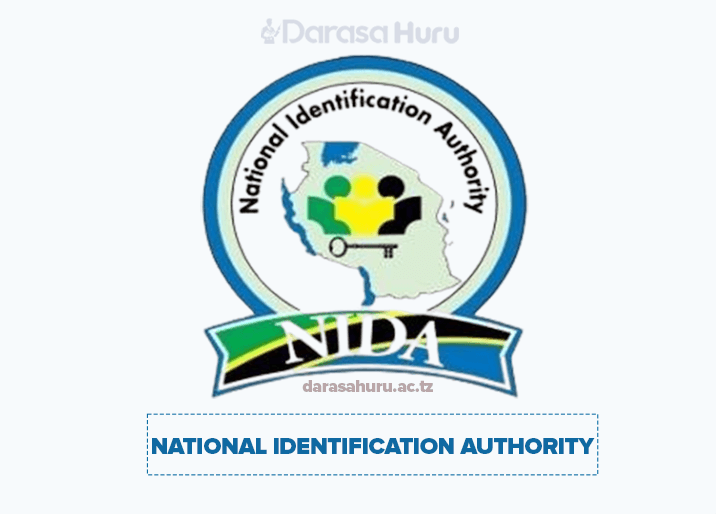
















Leave a Reply